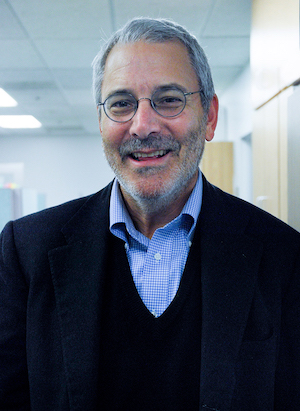
Wykładowcy plenarni
Debra Laskin, PhD

Distinguished Professor and Chair
Department of Pharmacology and Toxicology
Roy A. Bowers Endowed Chair
Rutgers University Ernest Mario School of Pharmacy
160 Frelinghuysen Road
Piscataway, NJ 08854
Education & Training
PhD - Pharmacology/Toxicology - Medical College of Virginia, Virginia Commonwealth University, Richmond, VA
MA - Biopsychology - City University of New York, NY
BA - Psychology - New York University, NY
Post-Doctoral Fellowship - Immunology - Wistar Institute, University of Pennsylvania, Philadelphia, PA
Research Interests
The overall goal of my research is to elucidate inflammatory mechanisms of tissue injury induced by exposure to xenobiotics. My focus is on macrophages. Although the involvement of macrophages in protecting against invading pathogens and tumor cells and initiating and resolving inflammatory responses to injurious and infectious agents is well documented, studies from my laboratory have demonstrated that macrophages also have a “dark side”. Thus, they can be activated to release excessive quantities of proinflammatory and cytotoxic mediators that actually promote tissue injury. An analysis of this process represents the main emphasis of our research. Two rodent models are being utilized to investigate the role of macrophages and inflammatory mediators in toxicity: the lung and the liver. In each of these tissues, we found that exposure of animals to toxic doses of acetaminophen or endotoxin in liver models and ozone, nano/microparticles, mustard vesicants, and chlorine in lung models is associated with localized accumulation of macrophages. Moreover, macrophages isolated from the lung or liver of animals treated with tissue specific toxicants are “activated” to release increased quantities of inflammatory mediators such as tumor necrosis factor alpha, nitric oxide and superoxide anion. To analyze the role of these cytotoxic mediators in toxicity, both pharmacologic inhibitors and transgenic mice are being utilized. Another aspect of our studies is to elucidate biochemical and molecular mechanisms mediating macrophage activation in the lung. This has involved investigations on signaling molecules, transcription factors, epigenetic regulators and microvesicles. We have also begun to assess the role of macrophages in tissue repair with a focus on impaired resolution of inflammation as a mechanism underlying tissue injury.
Źródło: https://pharmacy.rutgers.edu/directory/laskin-debra/
Howard M. Kipen, MD, MPH

Professor of Environmental & Occupational Health
Chief, Clinical Research & Occupational Medicine Division
Environmental & Occupational Health Sciences Institute (EOHSI)
Rutgers School of Public Health
170 Frelinghuysen Road
Piscataway, NJ 08854
Biographical Info
Dr. Kipen received his BA from UC Berkeley and his MD from UC San Francisco and MPH from Columbia University. He completed an internal medicine residency at the Columbia-Presbyterian Medical Center, and a fellowship at Mount Sinai Medical Center, Environmental Sciences Laboratory, in Manhattan.
Research Areas
Dr. Kipen´s research focuses on clinical and epidemiological studies of the health effects of ambient and indoor air pollution. He works closely with Rob Laumbach of the CROM division as well as Debra Laskin and Andrew Gow of Toxicology. They use both controlled human exposure models and real-world clinical studies to develop and test mechanistic biomarkers of air pollution toxicity. Concentrating on biomarkers of cardiopulmonary effects, prior studies have examined fresh diesel exhaust and secondary organic aerosols. We are currently studying effects of controlled ozone exposures on macrophage phenotypes in induced sputum. Working in the real world, we have examined cardiopulmonary and oxidative stress outcomes in highway passengers who were driven in a diesel-enriched enriched environment. More recently we examined the ability of portable air cleaners to reduce indoor particulate air pollution and consequent biomarkers of cardiopulmonary health in elderly apartment dwellers. In light of the current pandemic we have used our experience measuring and filtering particulates in homes to examine SARS-coV-2 aerosols in patient homes. A more recent interest is to explore underlying mechanisms for the robust human finding of acute cognitive impairment from inhaled CO2 at commonly encountered levels.
Research Highlights
With former EOHSI members Jim Zhang and David Rich, we conducted a panel study of 130 Beijing medical students built around the Chinese Government’s drastic reductions in air pollution during the 2008 Olympics. We observed broad declines in multiple oxidative stress, inflammatory, and platelet activation biomarkers. Major results have been published in JAMA and the American Journal of Respiratory and Critical Care Medicine with multiple subsidiary papers and a complete report published by the Health Effects Institute. We have Analogous increases in vascular and pulmonary oxidative stress have ben demonstrated after a 90 minute ride on the NJ Turnpike. Similar findings have been found using controlled exposure to fresh diesel exhaust iin our controlled environment facility. Related effects have been shown with New Jersey air pollution on the Turnpike and are being evaluated with air cleaners in individual homes.
Significant declines in proteasome (UPP) activity after exposure to secondary organic aerosol and diesel exhaust were observed immediately following exposure in healthy subjects, although our prior work did not reveal apparent nasal inflammatory effects from acute exposures to secondary organic aerosol. The above declines in proteasome activity showed a significant interaction (3-fold increase) in subjects with the ILE/ILE polymorphism of GSTP1.
Źródło: https://eohsi.rutgers.edu/eohsi-directory/name/howard-kipen/
